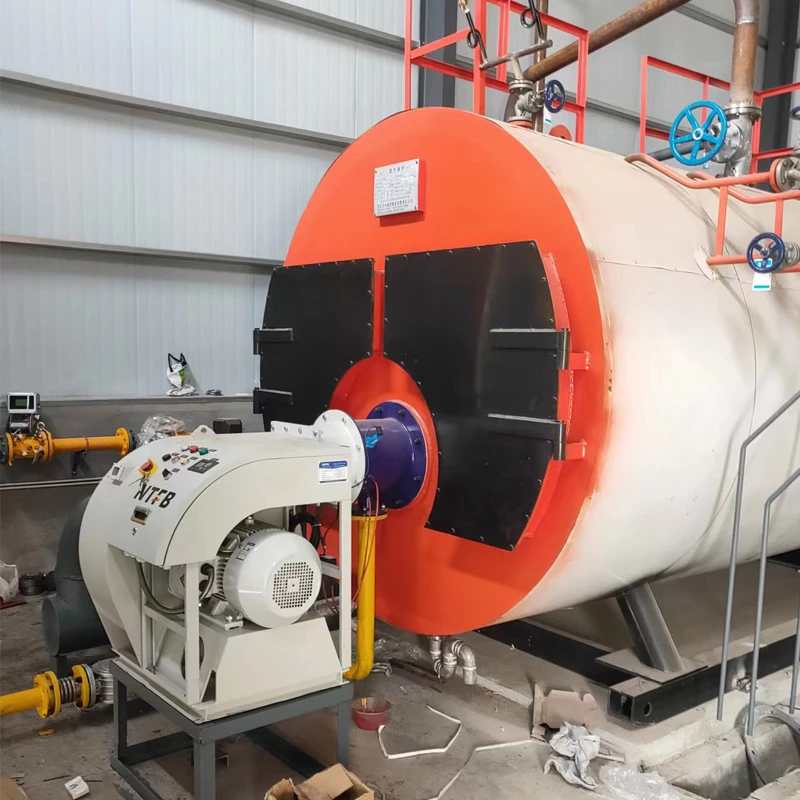
Nov . 18, 2024 23:03 Back to list
hot water boiler working principle
The Working Principle of Hot Water Boilers
Hot water boilers are essential components in various heating systems, providing reliable and efficient heat for residential, commercial, and industrial applications. Understanding the working principle of hot water boilers can help users optimize performance, enhance energy efficiency, and ensure safety.
Basics of Hot Water Boilers
At its core, a hot water boiler is a closed vessel that heats water for circulation within a heating system. The heat energy may be generated through various sources such as natural gas, propane, heating oil, or electricity. The boiler's primary function is to convert energy into heat and transfer that heat to water, which is then distributed throughout the building via pipes to provide warmth.
Components of a Hot Water Boiler
A standard hot water boiler consists of several key components, including
1. Boiler shell The outer structure that contains the water and provides insulation to minimize heat loss. 2. Heat exchanger A device that transfers heat from the combustion process to the water. It can be found in various configurations, such as fire-tube or water-tube designs.
3. Burner The component that mixes fuel with air and ignites it to produce flames, generating the heat needed to warm the water.
4. Controls A system of gauges, thermostats, and safety devices that monitor pressure, temperature, and overall operation to ensure safe and efficient boiler functioning.
5. Circulating pump An essential part that moves hot water through the heating system, ensuring effective distribution of heat.
6. Expansion tank A containment unit that accommodates the thermal expansion of water as it heats, preventing excessive pressure buildup in the system.
Operating Principle
The operation of a hot water boiler begins when the burner ignites the fuel, generating heat. This heat is then transferred to the water within the heat exchanger. As water absorbs heat, its temperature rises, becoming hot enough for circulation. The circulating pump then pushes this hot water through a network of pipes that distribute it to radiators, baseboards, or underfloor heating systems across the building.
One of the essential features of hot water boilers is their ability to maintain a consistent temperature through automatic controls. When the water reaches a predetermined set point, the thermostat signals the burner to turn off, stopping the heating process until the temperature drops again. This cycle ensures that the space maintains a comfortable environment while minimizing energy waste.
hot water boiler working principle

Types of Hot Water Boilers
Hot water boilers come in several types, each suitable for different applications
1. Conventional Boilers These boilers operate by heating water and using gravity to circulate it through the system. They are typically less efficient and are being phased out in favor of more modern options.
2. Combination Boilers These devices provide both hot water for heating and domestic hot water. They are compact and energy-efficient, making them popular for residential applications.
3. Condensing Boilers Designed to capture and utilize the heat from exhaust gases, these boilers achieve high efficiency and lower emissions, making them an environmentally friendly choice.
Advantages of Hot Water Boilers
Hot water boilers offer several benefits
- Efficiency They can achieve high efficiency ratings, especially modern condensing models, which utilize waste heat for additional savings.
- Comfort Hot water heating systems provide uniform and consistent heat, improving indoor comfort levels.
- Versatility Suitable for various applications, hot water boilers can be used for space heating, domestic hot water, or even commercial processes.
- Durability When well-maintained, hot water boilers have a long lifespan, reducing the need for frequent replacements.
Conclusion
Understanding the working principle of hot water boilers is crucial for optimizing heating systems. By recognizing the key components and operation processes, users can make informed decisions about maintenance, upgrades, and efficiency improvements. Whether for residential or commercial use, hot water boilers remain a cornerstone of effective heating solutions, providing consistent warmth while adapting to modern energy-saving technologies. As advancements continue, the evolution of hot water boilers promises even greater efficiency and ecological responsibility, ensuring a warm future for all.
-
Efficient Biomass Fired Hot Water Boiler | AI Heating Solution
NewsAug.01,2025
-
High-Efficiency Gas Thermal Oil Boilers | HPT Models
NewsJul.31,2025
-
Oil Fired Hot Water Boilers Sale - High Efficiency & Affordable
NewsJul.31,2025
-
High-Efficiency Commercial Oil Fired Steam Boiler for Industry
NewsJul.30,2025
-
High-Efficiency Biomass Fired Thermal Oil Boiler Solutions
NewsJul.30,2025
-
High Efficiency Gas Fired Thermal Oil Boiler for Industrial Heating
NewsJul.29,2025
Related PRODUCTS






















